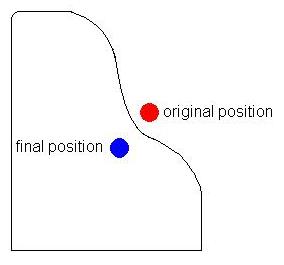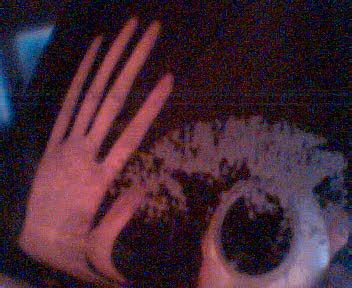Week 7
- Practical 1 - Audio Arts
- Practical 2 - Creative Computing -Supercollider FM/AM/SynthDef's [1]
FM
// Week 7 FM
(
SynthDef ("FM",
{
arg
freq1 = 602,
freq2 = 600
;
var
fm, cf, in
;
cf = MouseX.kr(0.1, 250);
in = MouseY.kr(0.1, 500);
fm = SinOsc.ar(
freq: [freq1,freq2] + // Carrier Frequency
VarSaw.ar(
freq: cf // Control Frequency
,
mul: in // Index
)
,
mul: [0.8] // Overall Amplitude
)
;
Out.ar([0,2], fm);
}
).load(s);
)
a = Synth.new("FM");
a.set(\freq1, 220, \freq2, 221);
a.free;
AM1
// Week 7 AM (1)
(
SynthDef ("AM1",
{
var
am,
ay,
bee,
cee
;
ay = MouseX.kr(1-70);
bee = MouseY.kr(1-70);
cee = (ay*ay)+(bee*bee);
am = Saw.ar(
freq: [ay,bee], // Carrier Frequency
mul: [SinOsc.ar(
freq: 1 + cee, // Control Frequency
mul: 0.5
),
Pulse.ar(
freq: cee, // Control Frequency
mul: 0.5
)
]
)
;
Out.ar([0,2], am);
}
).load(s);
)
b = Synth.new("AM1");
b.free;
AM2
// Week 7 AM (2)
(
SynthDef ("AM2",
{
arg
freq1 = 600,
freq2 = 601
;
var
am,
my,
mx
;
my = MouseY.kr(0.1,600);
mx = MouseX.kr(0.1,601);
am = SinOsc.ar(
freq: [freq1,freq2], // Carrier Frequency
mul: [Blip.ar(
freq: my + mx, // Control Frequency
mul: 0.5 ),
Dust.ar(
density: my + mx, // Control Frequency
mul: 0.8 )
]
)
;
Out.ar([0,2], am);
}
).load(s);
)
b = Synth.new("AM2");
b.free;
I think a more effective way of learning (at least for me) would have
been to be given a simple program such as a sinusoidal wave generator,
e.g
// Sine Wave
(
{
SinOsc.ar(
freq: 440,
mul: 0.5
)
}.scope(1);
)
and then add to the program every week as we learn new theoretical concepts such as argument, variables, synthdef's etc. This way we would be learning the theory, but also practically applying it instead of learning it, and relearning it after 7 weeks of not actually doing anything with it.
Sure we've been doing exercises that involved altering other patches, but by creating a program from scratch (no cutting and pasting), everything has been fused together consequently increasing my confidence with Supercollider immensely. I actually feel like I want to spend hours and hours a day working on it (not possible unfortunately) to increasing my knowledge. Before Supercollider was just an idea floating around, now it's a foundation I can build upon.
- Music Technology Forum - Presentation - Sebastian Tomczak's projects [2]
- Music Technology Forum - Workshop - Workshop on Iannis Xenakis, Gabrielle Manca, and Phillip Glass [3]
The second piece we heard was "In Flagranti", by Gabrielle Manca. This piece pushed guitar playing to its limits with unconventional playing, and unusual guitar sound effects. It reminded me of animalistic chirping sounds.
The last piece we listened to was "Rubric", by Phillip Glass. This was another interesting piece that contained a lot of arpeggios that started began to remind me of the sound of a 1 hert difference tone. Visually it reminded me of some old black and white footage of soldiers going off to war saying goodbye to their families.
- References
- [1] Haines, Christian. 2006. Lecture on Supercollider . University of Adelaide, 27 April.
- [2] Sebastian Tomczak. 2006. Presentation on Sebastian Tomczak's projects. University of Adelaide, 27 April.
- [3] Harris, David. 2006. Workshop on Iannis Xenakis, Gabrielle Manca, and Phillip Glass. University of Adelaide, 27 April.



